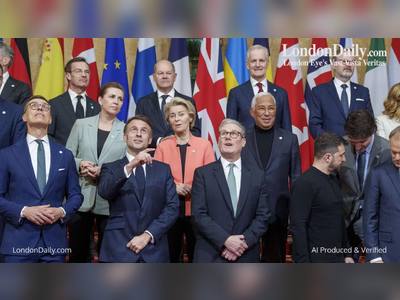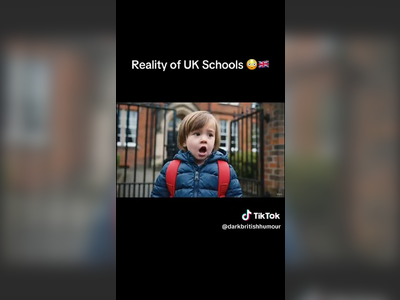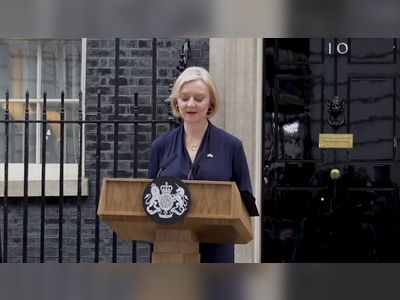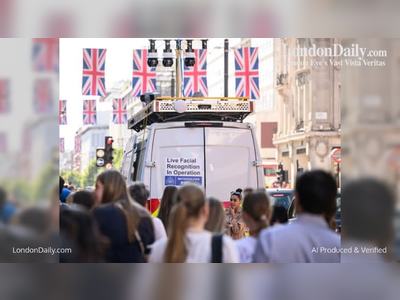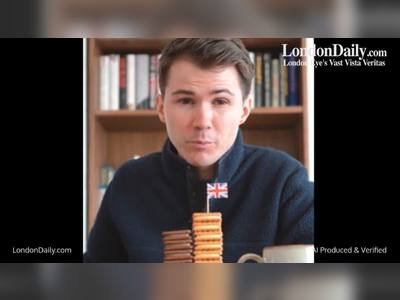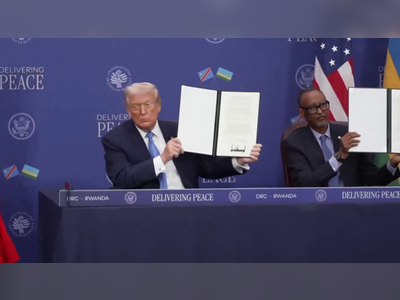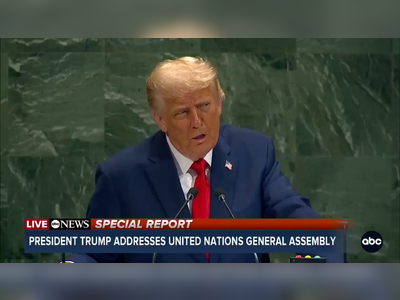UK Government Backs the BBC amid Editing Scandal and Trump Threat of Legal Action
Culture secretary defends BBC’s public-service role as former U.S. President Donald Trump demands retraction and files suit over edited speech
The United Kingdom government stepped in on Tuesday to defend the broadcaster as the BBC faces intense scrutiny over the editing of a speech by former U.S. President Donald Trump — and a legal threat from his camp seeking more than one billion dollars in damages.
Culture Secretary Lisa Nandy acknowledged that the broadcaster has “challenges, some of its own making,” but affirmed that it remains “by far the most widely used and trusted source of news in the United Kingdom.”
In the House of Commons Ms Nandy said that at a time when “the lines are being dangerously blurred between facts and opinions, news and polemic,” the BBC “stands apart” as a national institution.
She declared that the corporation is “absolutely essential to this country” and signalled that the government will oversee the forthcoming review of the Royal Charter in 2027 to ensure the BBC is “sustainably funded and commands the public’s trust.”
The legal storm comes after the BBC’s flagship investigative documentary programme was found to have edited together excerpts from Mr Trump’s January 6 2021 remarks in a way that may have created a misleading impression of him inciting violence.
The broadcaster admitted the edit was an “error of judgement,” removed the programme and accepted responsibility; following the fallout, Director-General Tim Davie and News Chief Deborah Turness resigned from their posts.
Mr Trump’s legal team, citing Florida defamation law, has demanded that the BBC apologise, retract the material and compensate him for reputational and financial harm or face a lawsuit for at least one billion dollars.
Legal experts note that a British claim is unlikely because the one-year defamation limitation has passed, but U.S. venues remain possible.
Opposition and media figures have seized the moment to question the BBC’s governance, editorial standards and funding model.
Conservatives and media commentators argue the broadcaster must reform its licence-fee framework, enhance transparency and rebuild credibility.
At the same time the government reaffirmed that the BBC’s independence is non-negotiable and that the licence fee is “not under immediate review” although “all options” remain on the table.
With the BBC under significant pressure both domestically and internationally, the corporation now faces the dual task of responding to the legal threat and restoring confidence in its editorial integrity, while the government prepares to launch its once-in-a-decade review of the broadcaster’s future role and funding.
Culture Secretary Lisa Nandy acknowledged that the broadcaster has “challenges, some of its own making,” but affirmed that it remains “by far the most widely used and trusted source of news in the United Kingdom.”
In the House of Commons Ms Nandy said that at a time when “the lines are being dangerously blurred between facts and opinions, news and polemic,” the BBC “stands apart” as a national institution.
She declared that the corporation is “absolutely essential to this country” and signalled that the government will oversee the forthcoming review of the Royal Charter in 2027 to ensure the BBC is “sustainably funded and commands the public’s trust.”
The legal storm comes after the BBC’s flagship investigative documentary programme was found to have edited together excerpts from Mr Trump’s January 6 2021 remarks in a way that may have created a misleading impression of him inciting violence.
The broadcaster admitted the edit was an “error of judgement,” removed the programme and accepted responsibility; following the fallout, Director-General Tim Davie and News Chief Deborah Turness resigned from their posts.
Mr Trump’s legal team, citing Florida defamation law, has demanded that the BBC apologise, retract the material and compensate him for reputational and financial harm or face a lawsuit for at least one billion dollars.
Legal experts note that a British claim is unlikely because the one-year defamation limitation has passed, but U.S. venues remain possible.
Opposition and media figures have seized the moment to question the BBC’s governance, editorial standards and funding model.
Conservatives and media commentators argue the broadcaster must reform its licence-fee framework, enhance transparency and rebuild credibility.
At the same time the government reaffirmed that the BBC’s independence is non-negotiable and that the licence fee is “not under immediate review” although “all options” remain on the table.
With the BBC under significant pressure both domestically and internationally, the corporation now faces the dual task of responding to the legal threat and restoring confidence in its editorial integrity, while the government prepares to launch its once-in-a-decade review of the broadcaster’s future role and funding.


